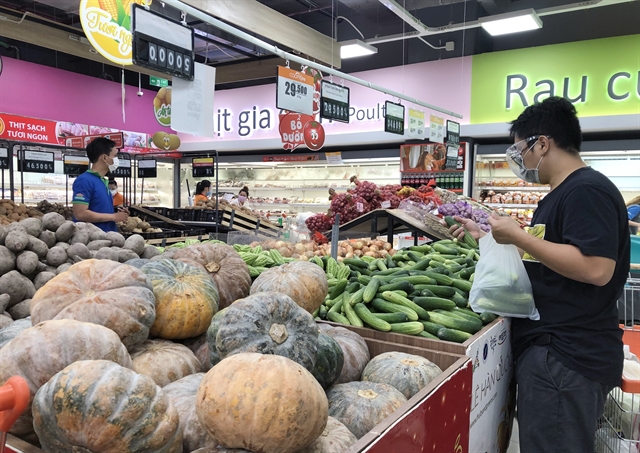 Society
Society


|
| A UN report estimates that one-third of food produced globally for human consumption is lost or wasted every year. — VNA/VNS Photo Mỹ Phương |
HÀ NỘI — Innovative and business-driven solutions to reduce food waste are critical to enhancing sustainability and reducing environmental impact, said Mark Tattlesall, the deputy ambassador of Australia to Việt Nam, in a workshop on food waste on Wednesday.
Focusing on the UN’s sustainable development goals to halve the amount of food waste by 2025, Future of Food Việt Nam gathered social enterprises and international organisations from Australia and Việt Nam to discuss how to manage food waste, create a sustainable food system, and strengthen the economies of both countries.
Acknowledging that everyone in the food supply chain plays a role in shaping the future of food, businesses have been taking conscious actions to reduce food waste and increase sustainability in their operations.
SunRice, a company providing rice food products to nearly 20 countries globally and currently operating a rice mill in Đồng Tháp Province, focuses on optimising its rice value chain.
The typical rice value chain in Việt Nam involves multiple stakeholders, from suppliers, farmers, collectors, semi and final rice millers, to companies and supermarkets.
Lưu Thị Lan, SunRice Group’s head of operations in Việt Nam, said: “This means that the rice grain produced by farmers will go through multiple intermediary layers, which resulted in a major loss in the process.”
By streamlining the process and improving the technology being used, the company ensures that the rice value is retained and productivity is increased as much as possible.
Meanwhile, hotels and restaurants are working to recycle the waste produced at their locations in the food and beverage industry.
As an initiative on food waste management, JW Marriot built a greenhouse in their hotel last October.
Steven Peter, the executive chef at the hotel, said: “We utilise oyster shells by roasting them, grinding them up, then using them as fertiliser on the greenhouse at the lakeside garden.”
A food waste index report conducted by the United Nations Environmental Programme revealed that on a global scale, one-third of food in the world produced for human consumption is lost or wasted. Not only affecting millions of life and increasing greenhouse gas emissions, food waste also costs the global economy nearly US$1 trillion each year.
Ronni Kahn, CEO and Founder of food rescue organisation OzHarvest, said: “If we do not fix our food system, if we do no minimise food waste, if we do not tackle all the issues that the global sustainable development goals have highlighted, we will not have the same planet for our children and grandchildren that we currently enjoy.” — VNS




